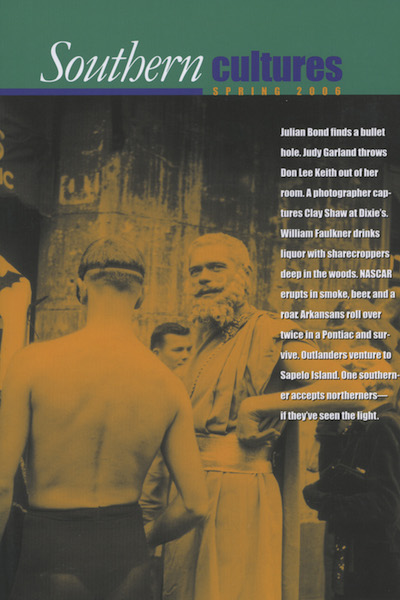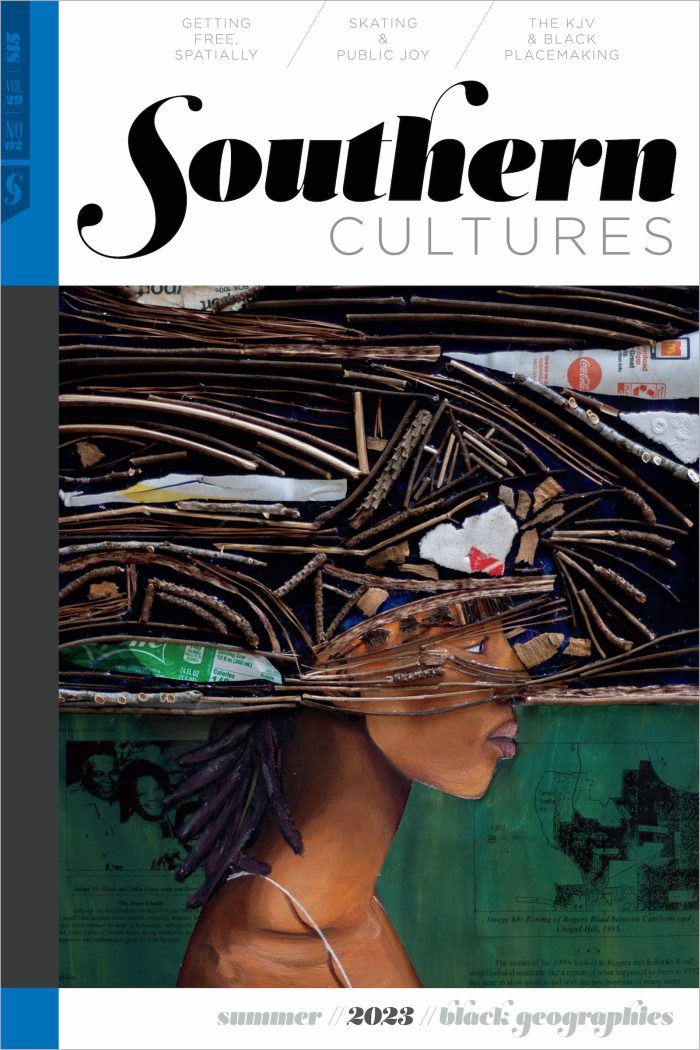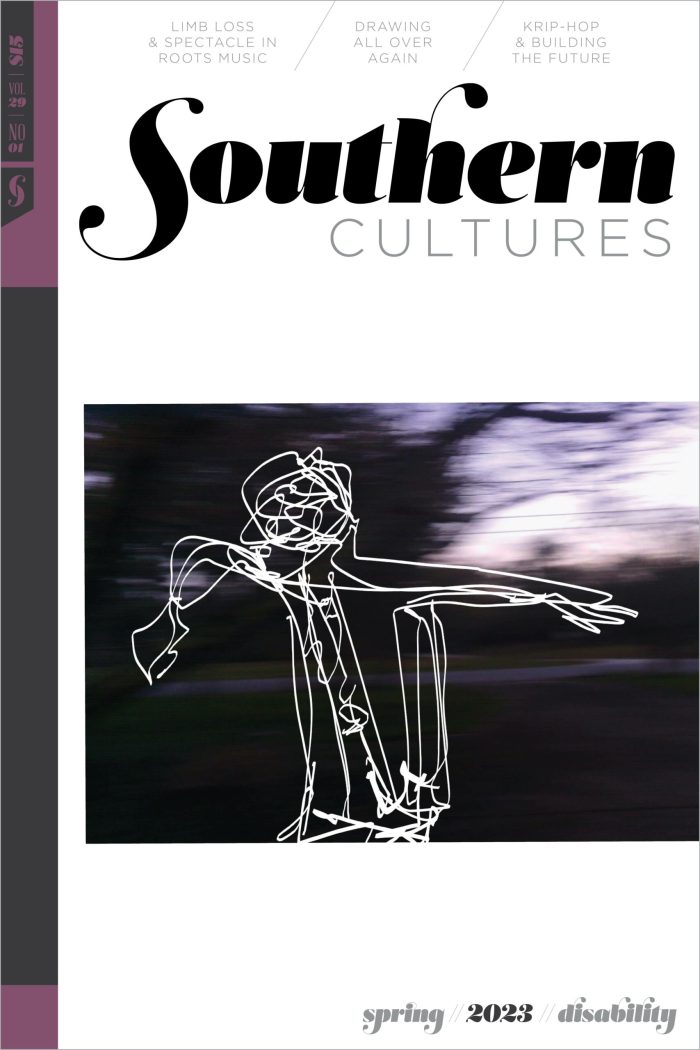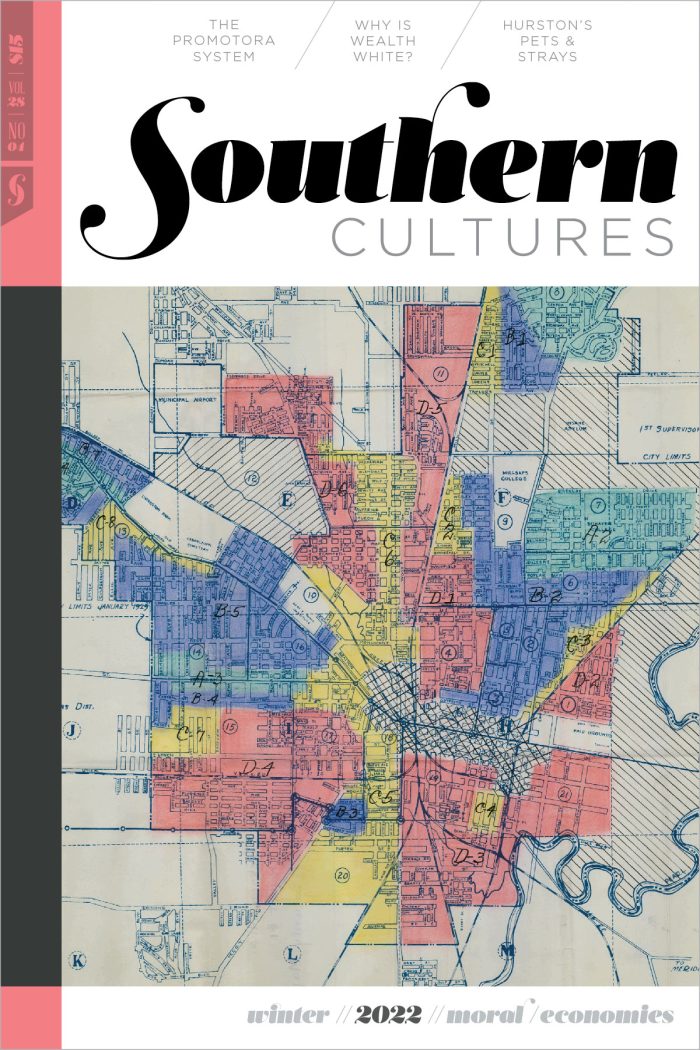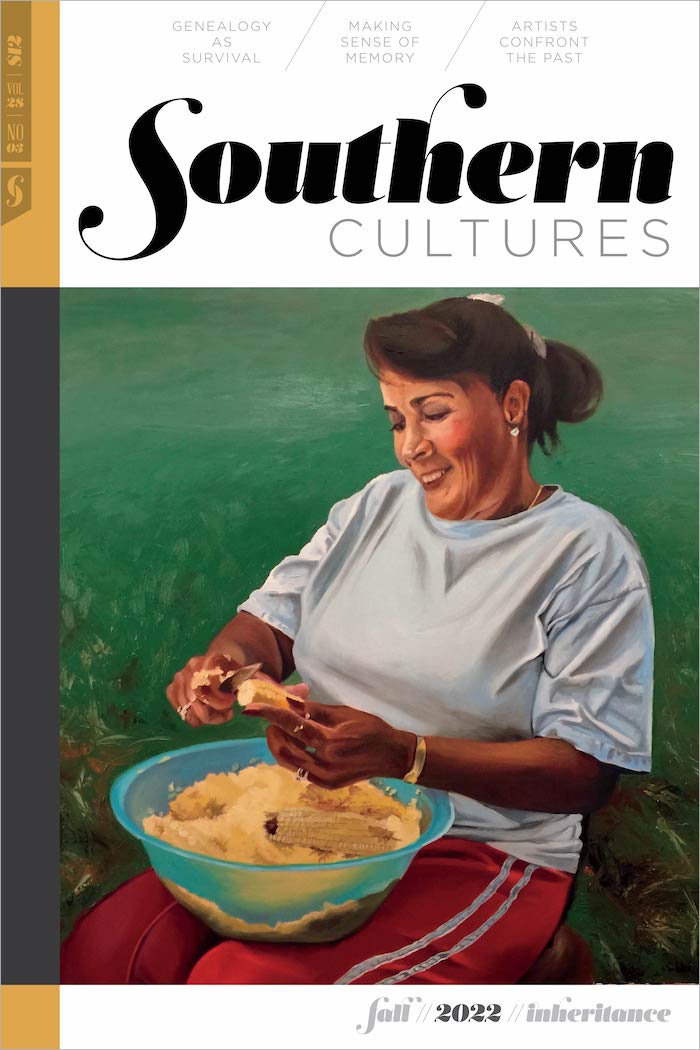BUY ACCESS
by Alma McClure Womack
“We even accept transplanted Yankees who have seen the light.” We welcome the following letter from Alma M. Womack, who writes to give us her view of the eternal question, “Who is a true southerner?” She makes two main points: First, that the most powerful group in a region controls the way outsiders regard it. »
BUY ACCESS
by Harry L. Watson
“You can almost always start an argument about southern unity versus diversity.” Is the South one place or many? Agreement is hard to find on this old chestnut, and you can almost always start an argument about southern unity versus diversity. On the diversity side, Chapel Hill sociologist Rupert Vance pointed out rather ponderously back »
BUY ACCESS
by Mary Hussmann
“What was most moving was that it was here that the ghosts of the people we’d read about jumped out of history and into our lives.” Though it was early morning, the day was already hot. I could smell the salty earth smell of the sea marsh that stretched out in front of us, cut »
BUY ACCESS
by Lucas Marcoplos
“A dark secret hid itself under my overt appreciation for barbecue and bluegrass: I know next to nothing about NASCAR.” I loved sweet tea, fried chicken, and pulled pork sandwiches. I drove an American-made car and enjoyed old country music. I had a fishing license and drank domestic beer, preferably cheap, on a regular basis. »
Photo Essay
by Sarah Wilkerson-Freeman
“Robinson’s photographs give us something of an antidote to the smearing and demonization of homosexuals sanctioned and encouraged by government officials for political gain. Before the assassination of a president, before the rise of the homophobic radical right, before AIDS and the crucifixion of Matthew Shepard, very southern gay men in a very southern place »
BUY ACCESS
by Harold Burson,
William R. Ferris
“He’d go in his back woods and drink himself insensible with some of his sharecropper friends.” Harold Burson was born in Memphis, Tennessee, on February 15, 1921. His parents had moved to the city one year earlier from Leeds, in Yorkshire, England. Burson’s father taught him to read by the age of three using the »
BUY ACCESS
by Harold Burson
“Mr. Falkner quickly admitted he hasn’t written his ‘best novel,’ that it is yet to come.” University, Miss., Nov. 17.—William Falkner thinks Hollywood is an over-grown country town, hasn’t read “Gone With the Wind” and believes his best novel has yet to be written.
BUY ACCESS
by William Faulkner
“I believe that man will not merely endure: he will prevail. He is immortal, not because he alone among creatures has an inexhaustible voice, but because he has a soul, a spirit capable of compassion and sacrifice and endurance.” I feel that this award was not made to me as a man, but to my »
BUY ACCESS
by James H. Clinton
“My people rolled over twice in a Pontiac one dark night, but survived. . .” Who are your people, she asked, when she heard that I too am from Arkansas. Who are my people?
BUY ACCESS
by Julian Bond,
Elizabeth Gritter
“We just said, ‘Whoa, what was that?’ and later saw this bullet hole.” Julian Bond has been on the cutting edge of social change since his days as a leader in the Atlanta sit-in movement in 1960. I had the opportunity to interview Bond in the fall of 1999 while I was an undergraduate at »
BUY ACCESS
by Perry Kasprzak
“‘Hi, my name is Don Lee Keith, and you don’t know me, but you ought to.'” Don Lee Keith was journalist-in-residence at the University of New Orleans for seven years, until his death in July 2003. Keith was about the brightest literary star that under-funded college could probably afford, and in this role he played »
BUY ACCESS
by John Shelton Reed
Louisiana State University Press, 2005 Hal Crowther is an award-winning journalist whose column in the Raleigh Spectator used to evoke angry letters from that weekly’s conservative readers. When he moved across the Triangle to Durham’s Independent his column evoked angry letters from the readers of that left-leaning publication. He might be described as politically liberal »
BUY ACCESS
by J. Tracy Power
Viking Penguin, 2003 In the summer of 1861, just a few months into the Civil War, Mary Boykin Chesnut wondered in her journal if anyone could say that they knew Robert E. Lee. “I doubt it,” she answered her own question. “He looks so cold and quiet and grand.” He looks cold and quiet and »
BUY ACCESS
by Don H. Doyle
University of North Carolina Press, 2005 Pondering his nation’s recent defeat at the hands of its German neighbors, the French religious scholar Ernest Renan wrote in 1882: “Where national memories are concerned, griefs are of more value than triumphs, for they impose duties, and require a common effort.” Renan’s famous essay “Qu’est-ce qu’une nation?”was a »
BUY ACCESS
by Dave Shaw
University of Nevada Press, 2004 Pondering his nation’s recent defeat at the hands of its German neighbors, the French religious scholar Ernest Renan wrote in 1882: “Where national memories are concerned, griefs are of more value than triumphs, for they impose duties, and require a common effort.” Renan’s famous essay “Qu’est-ce qu’une nation?”was a remarkably »
